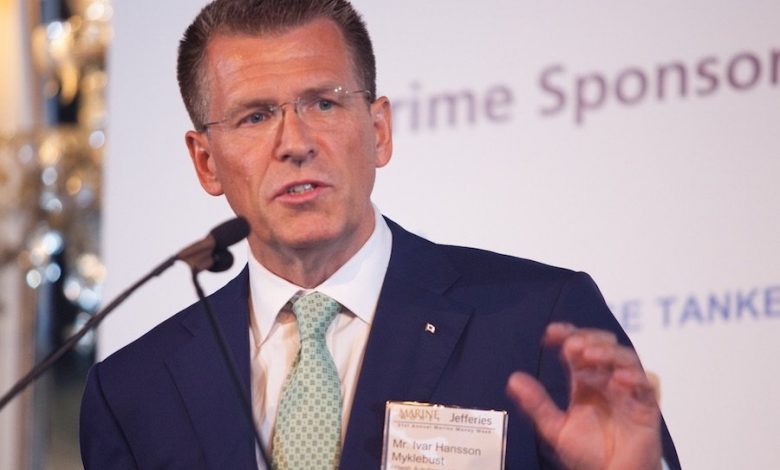Höegh Autoliners: Cap under lock and key

Ivar Myklebust has a refreshingly different take on the topic du jour in shipping – the impending global sulphur cap on marine fuel. Writing on the Höegh Autoliners website recently the CEO of the car carrier firm argued that more should be done to coerce refiners to be ready for the January 1, 2020 implementation of the cap.
“Why only control the consumers, i.e. the vessel operators, why not focus on the source – the refineries?” Myklebust wrote, suggesting that it would be far easier to control the refineries to ensure they do not sell non-compliant fuel to vessels without scrubbers, compared to following some 60,000 vessels around the globe.
Myklebust points out that if a government decides to ban a potentially dangerous product, the first step tends to be to take it off the shelves and ensure distributers do not offer it to consumers.
With this frame of mind Myklebust believes scrubbers are just a temporary solution.
“Rather than helping the transition to low sulphur fuels as the new standards, it might just delay the positive effect of the new standards,” he argues.
Myklebust has been at the helm of Oslo-headquartered Höegh Autoliners since November 2017. Prior to this posting he was CFO of the company.
After a long downturn, Myklebust is confident the car carrier sector is finally turning a corner.
“The car carrier market is nearing a more balanced supply and demand situation, following years of vessel oversupply,” he tells Maritime CEO in an exclusive interview. Myklebust describes the current global orderbook as “modest”, while demand for car shipments is gradually recovering. In addition, Myklebust says demand for shipments of other cargo, such as high and heavy and breakbulk, is also strengthening on the back of improving commodity prices.
Of course, the escalating threat of a serious trade war plays on the mind of the Höegh Autoliners boss.
“Any clouds on the horizon are mainly factors outside the industry’s control,” says Myklebust. “Trade barriers can come to have significant effect on cargo volumes transported between countries and thus carriers may need to re-design vessel networks to fit a new reality.”
This article first appeared in Maritime CEO magazine, published this week to coincide with SMM in Hamburg. Splash readers can access the full magazine for free by clicking here.
